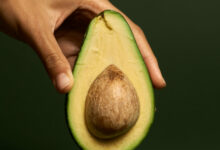Fifteen Canadian initiatives trying to reduce food waste
In Canada, $31 billion worth of food ends up in landfills or composters each year, according to a 2014 report from Value Chain Management International while 850,000 Canadians use food banks every month.
Growing concerns around food security and the impact of food waste on the environment has mobilized organizations, businesses and individuals in Canada to take action. Here’s a look at 15 Canadian initiatives trying to reduce food waste.
The Community Cabbage
A student organization at the University of Victoria, the Community Cabbage serves a free weekly hot meal to the campus community prepared from reclaimed food – edible but unsellable food donated by grocery stores. A team of volunteers use these ingredients to cook a healthy vegetarian meal at a community kitchen. Anyone is welcome to join in the cooking and/or eating. The organization is also working to develop an on-campus collective kitchen that provides regular free meals, food education programming, and a venue for other organizations to use in their work.
Love Food Hate Waste
Modelled after a namesake program in the United Kingdom, Metro Vancouver’s Love Food Hate Waste launched in 2007 to offer easy tips and ideas to reduce food waste at home. According to Metro Vancouver’s website, the initiative focuses on helping people get the most from the food they buy by using simple and practical steps to immediately reduce food waste. This includes storage tips for extending freshness, seasonal menus, portion calculation to determine how much of each ingredient to buy, and explanations about what ’best before’ dates really mean.
Terus
Toronto-based social enterprise Terus aims to change the restaurant industry from wasteful to sustainable. It is committed to reducing waste in restaurants using a team of sustainability and hospitality professionals who offer recommendations customized to each restaurant they work with to reduce waste and improve profitability.
Waste-Free Lunch Challenge
Ontario’s Waste-Free Lunch Challenge aims to inspire students and the school community to implement the 3Rs – Reduce, Reuse, and Recycle. An initiative of the Recycling Council of Ontario and Waste Reduction Week in Canada, it is designed to be a resource for classroom educators to raise awareness around the issue of waste reduction.
Feedback
It all started in Italy. Twenty-two-year-old Josh Walters was at a local pizza place and just before the store closed, the owner offered him free full pizzas that would have otherwise been thrown away. This sparked the idea for Feedback, a digital marketplace for surplus prepared food that might otherwise be discarded. Co-founded with his cousin Ben Walters, the Toronto-based app offers time-specific deals from the city’s best restaurants at up to 80 per cent off the original price.
Ubifood
When Caroline Pellegrini saw a friend’s sushi shop tossing out unsold food at the end of the day, despite being sold at a discount, she created Ubifood to to connect consumers and retailers. The app, currently exclusive in Montreal, gives geolocation-based real-time push notifications to alert users of discounted food in their area. The sales pitch is that customers save money, food establishments make money and above all, it reduces food waste.
Big Wheel Burger
Using recyclable food containers and cutlery, composting, and shrinking the portion size of their popular fries, Victoria’s Big Wheel Burger has only one one garbage pickup every six weeks. It has partnered with Food Eco District (FED), a non-profit organization that works with local restaurants committed to reducing their environmental impact and developed a garden. The wrappers, plates and food scraps from the restaurant are turned into high-quality compost that is used in this garden. Big Wheel also uses high-efficiency appliances including deep fryers that reduce deep fryer oil use by half. The used oil from the restaurant is converted into biodiesel that powers its cargo vans.
Bistro 67
In Whitby, Durham College’s Centre for Food has a full-service, teaching and learning restaurant, Bistro 67, that is certified by the Green Restaurant Association. Not only does this field-to-fork restaurant recycle and compost all its kitchen waste, but it also has its own gardens, greenhouses and fruit trees on campus grounds that are maintained by the students. This allows them to serve local foods they’ve grown themselves.
The Coup
The Coup Calgary recycles everything it can, opts for paper products that are post-consumer recycled, and uses products that arrive in minimal packaging. The eatery which offers organic food along with rennet-free cheeses and non-GMO soy products and grains, plants 36 trees per month through Tree-Canada to offset what they do waste. The food they don’t use is composted for their garden that produces vegetables for their menu. They also run on 100% wind power and even have beehives nearby.
Craft Beer Market
With locations in Calgary, Edmonton, Ottawa, Toronto and Vancouver, Craft Beer Market is the largest L.E.A.F.-certified (Leaders in Environmentally Accountable Foodservice) restaurant in Canada. Their beer operating system is powered by a renewable energy provider, they support ocean health by making sustainable seafood choices through Vancouver Aquarium’s Ocean Wise program, their still and sparkling water comes in reusable glass bottles, and their uniform even includes Levi’s waterless technology jeans. They also have a composting and recycling program, use only biodegradable to-go containers, napkins and other paper products.
Nuburger
Located in Winnipeg, L.E.A.F.-certified Nuburger, is reducing its carbon footprint by using fresh, local products. Voted one of Canada’s Greenest Restaurants by L.E.A.F. in 2015, the eatery recycles and composts almost everything to reduce the amount of landfill garbage and uses takeout packaging and napkins that are either recyclable or compostable.
Osco!
In 2014, Osco! a part of the InterContinental Montreal Hotel, created a Chef’s Garden on the roof of the hotel, using 50 planting boxes filled with select veggies and herbs that appear on the menu. A certified Green Restaurant, Osco! introduced a composting project that same year to eliminate food waste and fertilize its rooftop garden.
The River Café
Calgary’s L.E.A.F.-certified River Cafe uses 100% green energy, composts and recycles all paper products in the restaurant, and uses 100% biodegradable materials in their to-go containers. The eatery has eliminated the use of bottled water and works with Ocean Wise to make sustainable seafood choices. Their garden apprentice program allows kitchen staff to spend time throughout the growing season sowing, tending and harvesting organic produce resulting in an extensive edible container garden on site. The berries, flowers, greens and herbs they grow are featured on their menu and anything they don’t grow on their own is sourced from urban farmers.
The Sprout
The Sprout, a St. John’s vegan and gluten-free eatery, has a keen focus on waste-reduction. They have created a menu using local produce and beers, that reduces transportation emissions. They compost organic waste and recycle everything, from glass to plastic to paper. Even their plastic to-go containers are reusable and can be returned for a one dollar refund.
Terra Breads
Vancouver-based Terra Breads bakery has been separating food waste for 10 years using color coded bins that specify exactly what each baker can put in that bin. The waste in these bins are then either recycled or composted leading to no garbage. Even the bakery’s napkins and cutlery are compostable.








Redes Sociais - Comentários